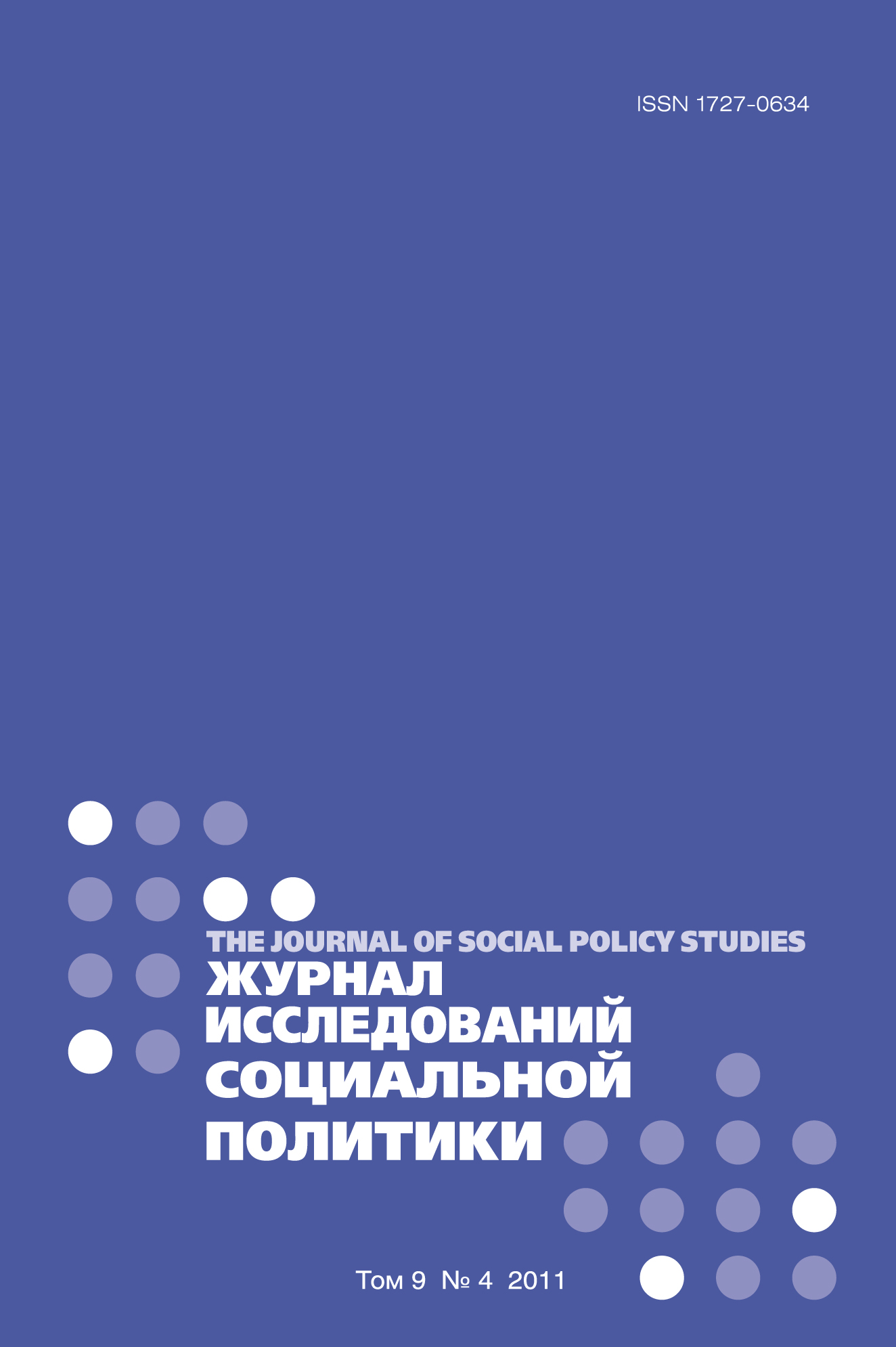The lower class in Russia: the role of social policy in slowing down the process of its formation
Abstract
The ‘underclass’ – or tier of the population in entrenched poverty – is undergoing a process of continual growth in Russia, contributing to climbing rates of impoverishment and deprivation. Modern social and economic policy can provide incentive mechanisms to stimulate upward social mobility, such as via the education system, social tax deductions or refunds, and financial help with educational services, medical treatment or buying a home. However, in contrast to the issue of poverty itself, tackling this growth has never been a state priority in Russia. Current socio-economic policy performs a mainly humanitarian function, which does not act to halt the growth of this social stratum. This is because the use of state services requires a functional level of literacy. This excludes many of those who are already suffering from poverty, or at risk of sliding into it. The issue is also complicated by the acute nature of poverty and deprivation, which affect almost half of the Russian population to some extent.
The author argues that, if active measures were taken to confront this problem – specifically, taking both an economic and socio-economic view of the issues at hand – it would be possible for this situation to change. Employing both socio-economic and cultural means of defining ‘underclass’, this article aims to explore possible means of slowing down its expansion via different approaches to government policy on welfare, education and other areas. Drawing on data from 17 cycles of the Russian Longitudinal Survey (РМЭЗ), the author argues that the most promising issues for public policy to address include structural economic reforms to bring about guaranteed work and greater job security; market regulation and a minimum wage; increased and fully enforced labour rights. Increased access to education is also shown to be vital, alongside a growth in access to specific types of training (i.e. in targeted areas of the economy and in higher professional education); state encouragement and support for internal labour migration; and wider access to functioning employment services, especially in rural areas.















